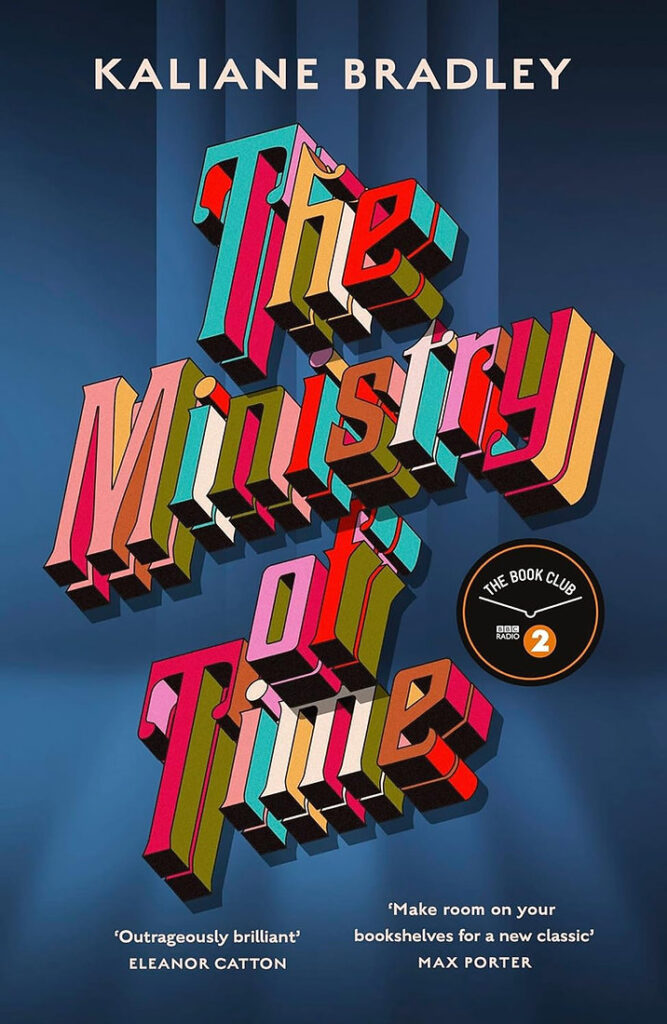
Slightly future Britain, plagued with heavy rain, temperature spikes and a secretive ministry that has recently and unexpectedly gained the power of time travel. Bailey’s novel is no staid bit of dystopian dross however. What unfolds instead is a playful mess of genres: a historical speculative sci-spy romance centered around a somewhat hapless civil servant.
The novel opens in what seems to be the not so distant future. Britain has recently gained the ability to open time gates and has pulled a seemingly odd selection of “expats” forward in time. The long term effects of time travel on the Human mind and body are an unknown and so history is plundered for guinea pigs. Each was to imminently die on their original time lines and so, it was reasoned, are perfect to essentially be experimented on. Each expat is paired with a bridge, a member of the civil service who has passed high security clearance to act as nanny, teacher, friend and researcher whilst carefully introducing the expats to mid 21st Century life by living together for one year. After which they’re inexplicably expected to get jobs and get on with their new lives.
Our protagonist is paired with Commander Graham Gore, an early 19th century Arctic Explorer who was rescued by the Ministry from a doomed exploration to the find the north-west passage. That Gore is a genuine historical figure is unexpected. That Bailey’s protagonist is a thinly veiled self insert makes certain experiences morally questionable. When a romance inevitably blossoms between the two our awkward and proper Victorian Commander is taught how to perform oral on her. Sexual relationships with is former ship mates are also alluded to although there is no historical evidence of this.
The novel is rather silly and works because of not in spite of this: the time travel and it’s impacts don’t stand up to even the gentlest of scrutiny; in a very Pratchett-esque way we’re explicitly told “Don’t worry about it”. Similarly the purpose of the Ministry’s mission is never satisfyingly explained nor is the rationale for extracting such an omnium-gatherum of historical figures. And yet it makes for compelling reading. The supporting characters are generally well formed if a little tokenistic. 1665 and 1914, characters are often referred to as the year from which they were extracted, are a beautiful iridescent lesbian pulled forward from plague era London and to whom the protagonist is also attracted and a gay soldier who originally died during the battle of the Somme and who develops unrealised feelings for Commander Gore.
And yet it deals with some serious issues within it’s goofy narrative. The Cambodian genocide which both Bailey’s and her protagonist’s Mothers fled allows for a an exploration of the intergenerational trauma suffered. The assimilation of the expats into such an alien way of life, with radically different technology, weather and social norms allows for an exploration of their “hereness” and “thereness” and how different their Britishness is to the protagonist. Less deeply we also see the appreciation the gay characters have to be able to flourish in a far less repressive society than the ones they were born into.
Throughout we feel the author’s personal story and the exorcising of belonging to two different cultures whilst lacking wholly the acceptance of either. Bailey is a funny, sexy writer with a love for metaphor which she mobilises against the absurdity of the plot and of real life. What she brings into being is a fun piece of escapism that melds and defies genre but that not so subtly deals with her own lived experiences. I still feel uncomfortable that Captain Gore was real and pulled into this but the fact a long dead historical figure has been dragged forward in time and given a life he would never have expected is perhaps a meta point.
